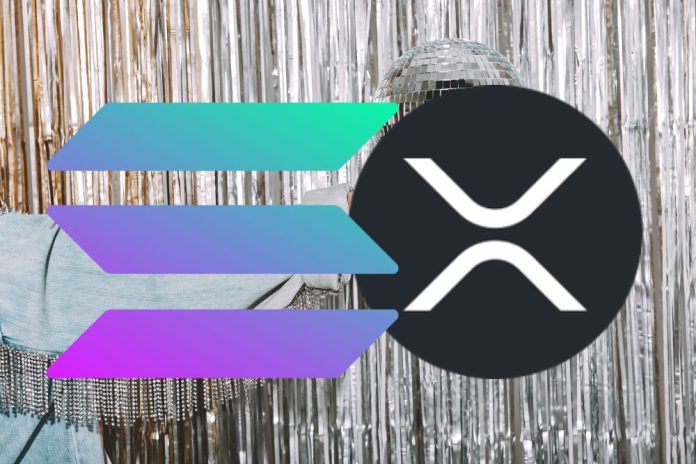Recent remarks from Edo Farina, CEO of Alpha Lions Academy, regarding congestion on the Solana blockchain have ignited discussions within the crypto community.
Farina’s tweet highlights the Solana network congestion of some hours ago, which has caused multiple transaction failures for non-vote activities. He expressed skepticism over Solana’s advertised 50,000 transactions per second (TPS) capability, calling it “just marketing.”
Farina contrasts Solana’s performance with XRP, claiming XRP transactions “never fail” and suggesting that as Solana users experience these issues, they may turn to XRP, boosting its adoption.
Farina’s critical stance on Solana underscores a wider debate over the scalability and reliability of high-throughput blockchains. While Solana is known for its high theoretical TPS, critics argue that real-world conditions, including congestion and performance inconsistencies, challenge these claims.
BREAKING: 🚨 Solana Network is highly congested, causing failed non-vote transactions.
It’s literally impossible to do anything and Solana’s 50K TPS is just marketing. $XRP fixes that, it never fails. Once Solana bros wake up to the truth, it will skyrocket XRP’s adoption. pic.twitter.com/hl38z58lwS
— EDO FARINA 🅧 XRP (@edward_farina) November 9, 2024
The network congestion reflects the gap between theoretical and actual performance, as users report failed transactions despite Solana’s advertised capabilities.
An XRPL Validator with pseudonym Vet, weighed in on the conversation, suggesting a more nuanced perspective. Vet noted that congestion issues like Solana’s can be seen as positive indicators of high usage. “It’s a good problem that Solana has,” Vet commented, highlighting that congestion due to high demand reflects the platform’s popularity and growing user base.
Vet also addressed Solana’s TPS claim, comparing it to XRP Ledger’s advertised 1,500 TPS, which he noted is higher in practice. According to Vet’s remarks, while advertised TPS metrics provide useful benchmarks, they may not fully capture a network’s performance under actual operational demands.
We are on twitter, follow us to connect with us :- @TimesTabloid1
— TimesTabloid (@TimesTabloid1) July 15, 2023
Solana’s High TPS Claims and Real-World Limitations
Solana’s reputation as a high-performance blockchain largely rests on its TPS capabilities, which are among the highest in the industry. The network’s unique consensus mechanism, Proof of History (PoH), combined with Proof of Stake (PoS), aims to process thousands of transactions in seconds.
In theory, this design positions Solana as a competitor to centralized payment systems, providing the speed and efficiency required for mainstream financial applications.
However, the recent congestion on Solana has highlighted the limitations of these claims. The network’s actual performance, affected by technical factors and high user demand, has led to repeated congestion incidents.
Critics argue that the high TPS figure may not be sustainable under heavy loads or varied transaction types. Non-vote transactions seem more prone to failure during these congested periods, revealing gaps in Solana’s ability to handle diverse transaction types under high demand.
XRP as an Alternative Solution?
In his tweet, Farina contrasts Solana’s performance issues with XRP’s reliability, asserting that XRP transactions “never fail.” XRP Ledger (XRPL), the underlying blockchain for XRP, is built on a consensus protocol designed to provide fast and secure transactions, with a consistent throughput of around 1,500 TPS, as acknowledged by Vet.
XRPL’s consensus protocol does not rely on traditional mining, which allows it to avoid congestion issues often seen in proof-of-work or even some proof-of-stake systems. Farina posited that this reliability makes XRP a viable alternative for users disillusioned with Solana’s limitations.
For XRP, which traditionally focuses on cross-border payments and financial services, reliability remains the strongest attribute. Farina’s suggestion that XRP’s adoption could surge as Solana users seek alternatives reflects the potential for networks with proven stability to attract users who prioritize reliability over peak TPS metrics.
Disclaimer: This content is meant to inform and should not be considered financial advice. The views expressed in this article may include the author’s personal opinions and do not represent Times Tabloid’s opinion. Readers are urged to do in-depth research before making any investment decisions. Any action taken by the reader is strictly at their own risk. Times Tabloid is not responsible for any financial losses.
Follow us on Twitter, Facebook, Telegram, and Google News



